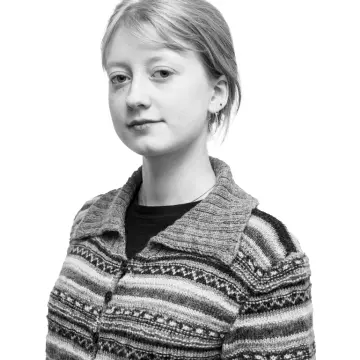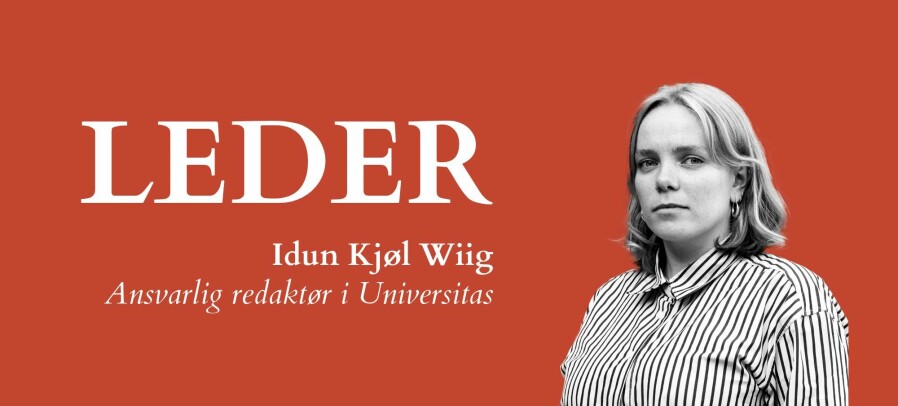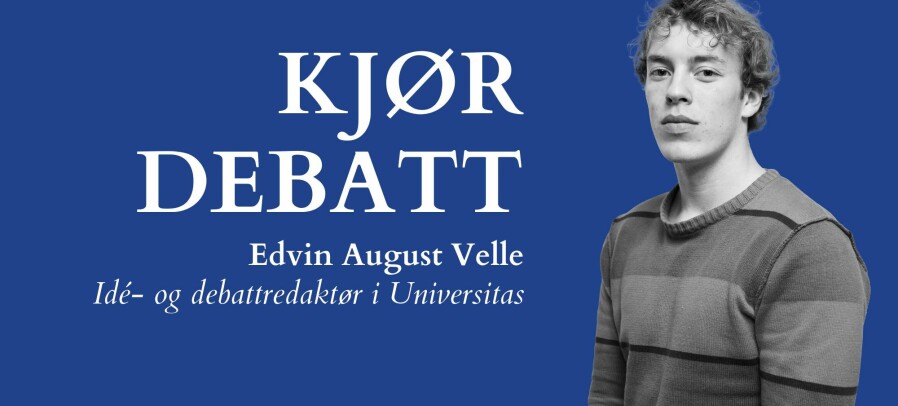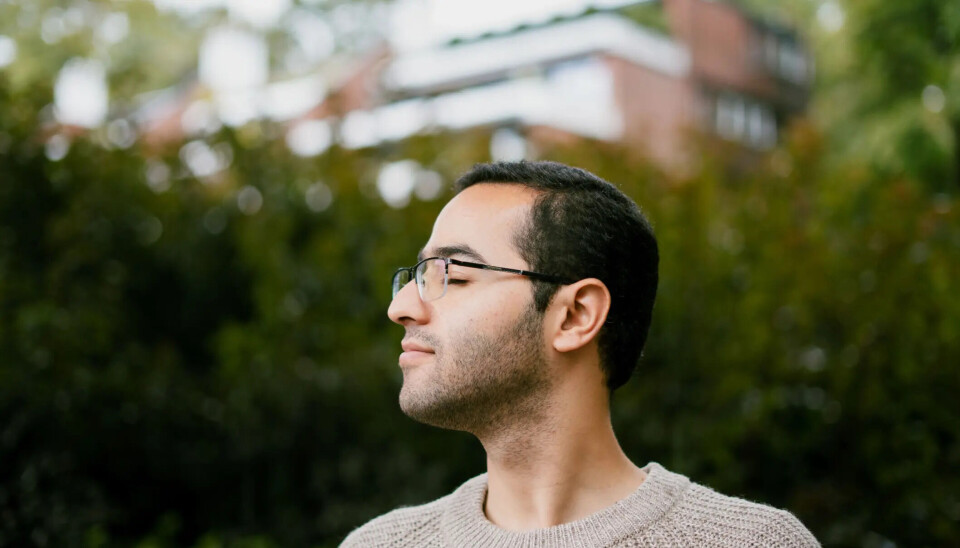
From Gaza to Blindern to finish his studies:
— I left with a broken heart
This is a translation of the Norwegian article written by Freyja Eikrem Ims, with photographs by Sara Aarøen Lien (published in Universitas on September 9, 2024).
For the first seven months after October 7, 2023, Mohammed Yosri Abuselmiya (23) stayed in Gaza, hoping to survive. Now at Blindern, he hopes to graduate.
On August 14 a plane from Cairo landed at the Oslo Gardermoen airport. Among the passengers was Mohammed Yosri Abuselmiya (23), one of the ten medical students from Gaza permitted to take part in an exchange semester at the University of Oslo, met at the gate with eager journalists and a welcoming public waving Norwegian flags.
Six siblings remain
Now, with the school year well underway, the media’s interest has subsided. Abuselmiya greets Universitas with a smile at the entrance to the Blindern Student House, bringing us to his small and white-walled apartment where the air is thick with the scent of herbs and spices. Prayer calls from an unknown source play faintly in the background.
— Would you like tea?
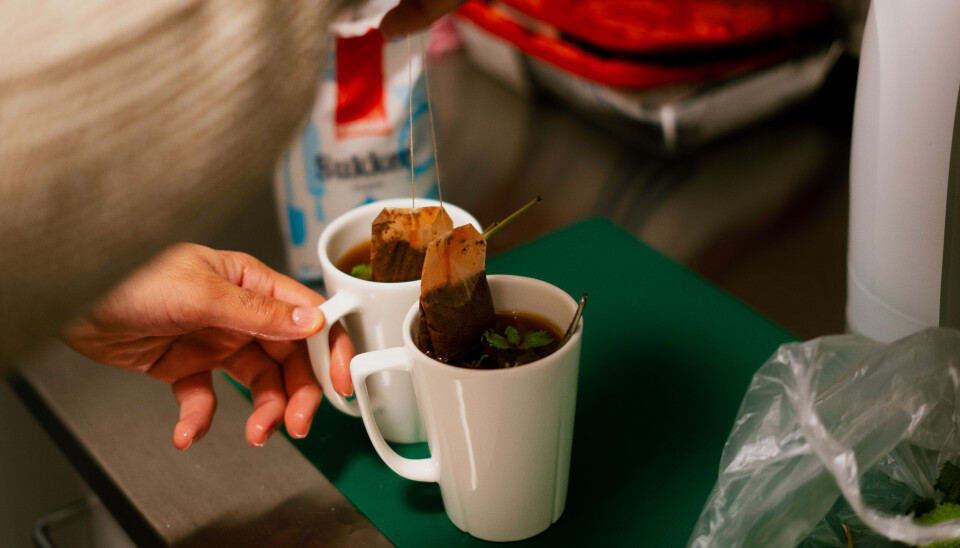
Abuselmiya takes his tea with fresh mint and heaps of sugar—the latter despite his intentions to specialize in cardiology. He begins to tell the story of his family. His father works as a civil engineer while his mother stays at home to look after the many kids.
— There are six girls in my family, I’m the only boy, Abuselmiya says.
— The oldest is a lawyer, and the youngest, Sara, is very pretty. She would like to live like people usually do, but unfortunately that is not possible. She is still in Gaza.
From Gaza to Egypt
On October 7 the Palestinian militant group Hamas launched an extensive rocket and ground attack against Israel. Many civilians and military personnel died. Israel responded with a counterattack, further exacerbating the situation. The town where Abuselmiya’s family lived has been cordoned off ever since that day.
— On the twelfth day of the war, October 19, my family home was bombed, says Abuselmiya.
After losing their home, the family took to Rafah to seek refuge.
— The situation in Rafah is complicated. The schools and hospitals are used as shelter, so studying was out of the question already after October 7.
Hoping to continue his studies, he left for Egypt on April 24.
— My family made it possible for me to go. My dad told me, you must go, so go now, and we will be here like the rest of the people in Gaza, Abuselmiya says.
— So I left with a broken heart. What else could I do?
Heartache
For a long time, the dream of becoming a doctor has guided Abuselmiya’s life. It is this dream that brought him to Oslo.
— I started as a medical student because it is my father’s dream.
One day his father got a pain in his chest; something was wrong with the heart. For Abuselmiya, escorting his father to the emergency reception was an experience that changed his life.
— Conditions there were not good. The queues were long, and the doctors were pressed on capacity and time.
“Many of my supervisors and teachers are dead. We have to continue in their footsteps.
Feeling like his father’s condition was inadequately treated, Abuselmiya felt that he himself could make a difference.
“Many of my supervisors and teachers are dead. We have to continue in their footsteps.”
— So I decided to become a doctor, Abuselmiya says and starts to laugh.
— I had to become a cardiologist to help people!
Alone together
It took a long time for Abuselmiya to get out after the Gaza Strip was closed off.
— I spent around seven months in a warzone. Compared to how I live today, it was like night and day.
Abuselmiya looks out of his window at the rain outside. There’s little that resembles life at home.
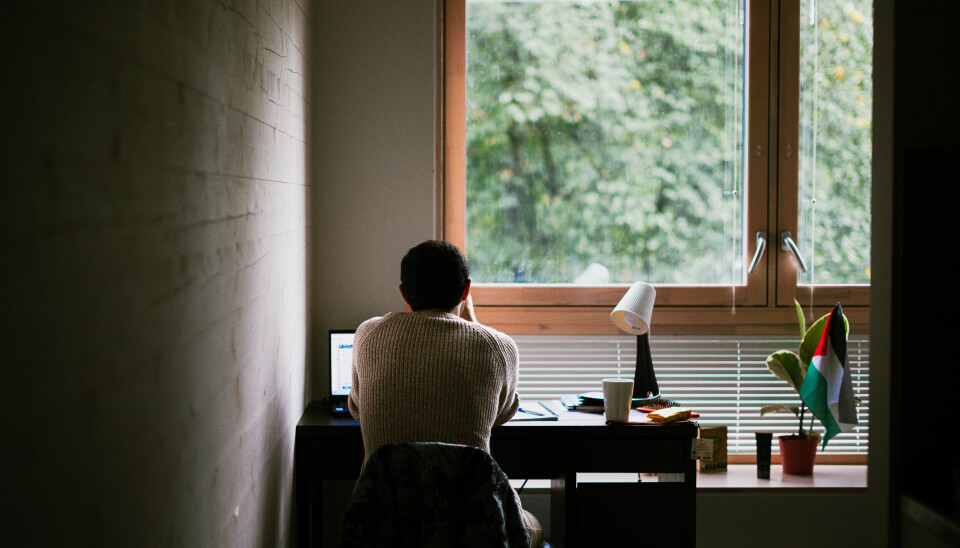
— In Gaza all I did was wander around the streets to look for firewood for boiling water or cooking food. Just to stay alive.
It is difficult to know whether his family is still there. Abuselmiya has not been able to contact them.
— There is poor coverage, so contacting them is difficult. But I have to stay here, because I am here also for them.
Yesterday he tried calling his family, Abuselmiya says, struggling to find words. There was no answer.
— Some of them are gone.
A silence settles into the room.
— They’re struggling just to find food and water, the bare necessities. They can’t find a place to sleep at night, with so many places leveled by bombs.
—But being here I have a great opportunity. So I’m trying to adapt.
Abuselmiya fidgets in his seat.
— I can’t manage to sit down for long. The nature here is amazing. We don’t have that in Gaza. From one end to the other, the Gaza Strip is around 50 kilometers long, Abuselmiya says with a sad smile.
— There’s no room for nature.
In the footsteps of the dead
In July the Ministry of Foreign Affairs (UDI) initially rejected the student visas of many of the ten medical students from Gaza, citing “uncertain return conditions”. Soon after, the government interfered and got UDI to reverse their initial decision. Abuselmiya and the nine other medical students were granted permission to complete an exchange semester at UiO’s Faculty of Medicine together with other exchange students from around the world.
The plan is that the Al-Azhar University in Cairo will welcome the students from December for further education.
— There are other exchange students in my class, and so we get to share our knowledge and experience with people from other countries.
He speaks of the gratitude they express for having gotten a warm welcome. Nevertheless, the students face difficulties in adjusting to life in Norway.
— We have to be thankful, but I’m still very confused.
We're very odd people; we’re both dead and alive.
Abuselmiya sits but his moving legs betray his restlessness. While he is thankful for the opportunity he has gotten, the way forward is long and unpredictable.
— What we dream of and pin our hopes on is to finish our studies. Gaza has lost a lot of its medical staff, and medicine is our lifeline.
He underlines the importance of finalizing his studies.
— Many of my supervisors and teachers are dead. We have to continue in their footsteps.
The way back
One thing is certain: life in Oslo will not last. After a semester at Blindern, Abuselmiya must leave again.
— We are here now. We have traveled from Asia to Europe to do great things, and we have to stay strong and show that medical students and the Palestinian people cannot be broken.
He stops to sip at his tea.
— You know, life is not just about getting paid, living in a nice place, or having a nice car.
He looks around thoughtfully.
— We're very odd people; we’re both dead and alive.
He searches for words before continuing.
— We have to be strong and we have to help people around the world. Life is not about killing people, killing children.
Abuselmiya has always seen the importance in helping people.
— They have a family, they have kids, they have a life and dreams.
He feels a special responsibility for the Palestinian people.
— And us Palestinians. We are people, we dream and hope, we have kids, and we just want to be like the others.
